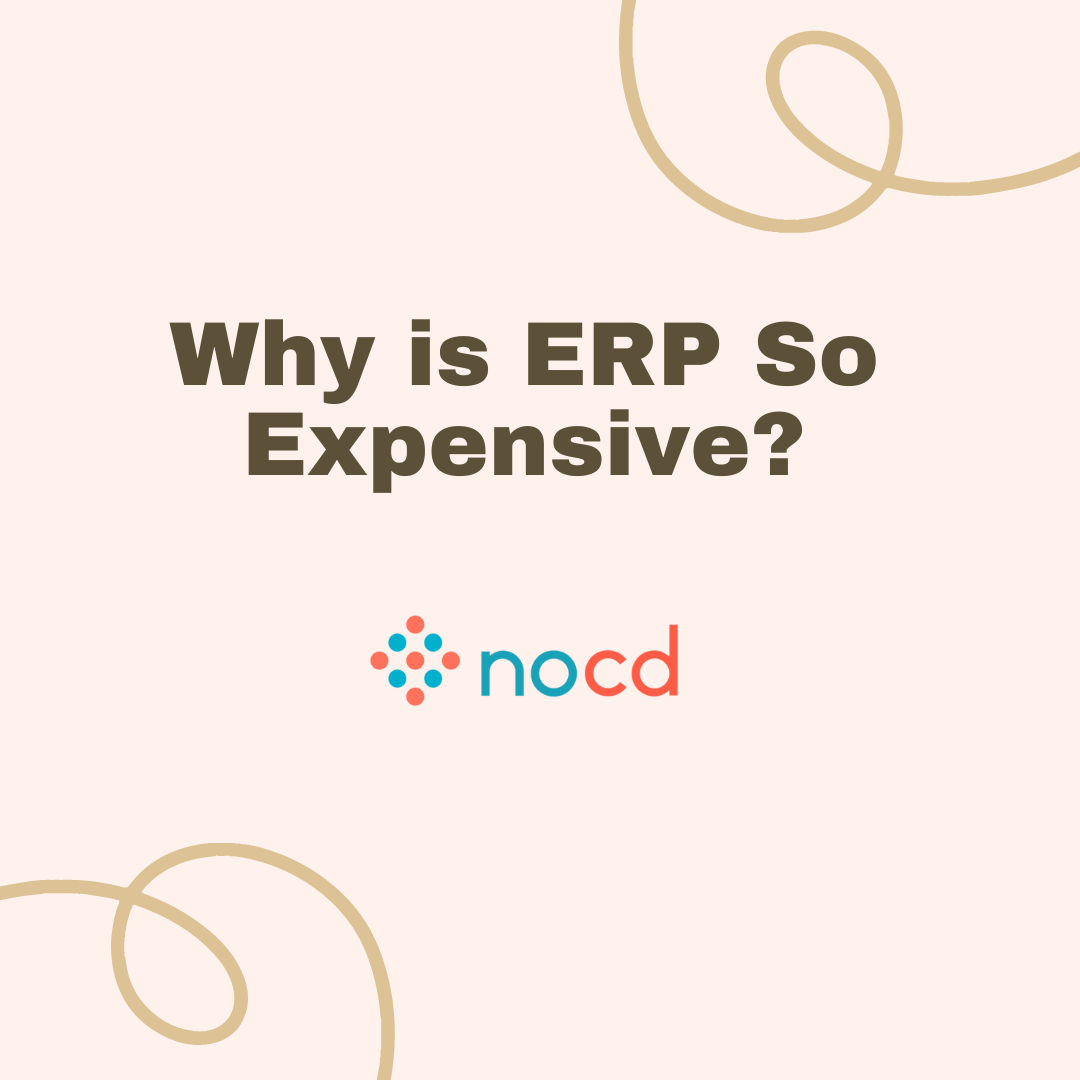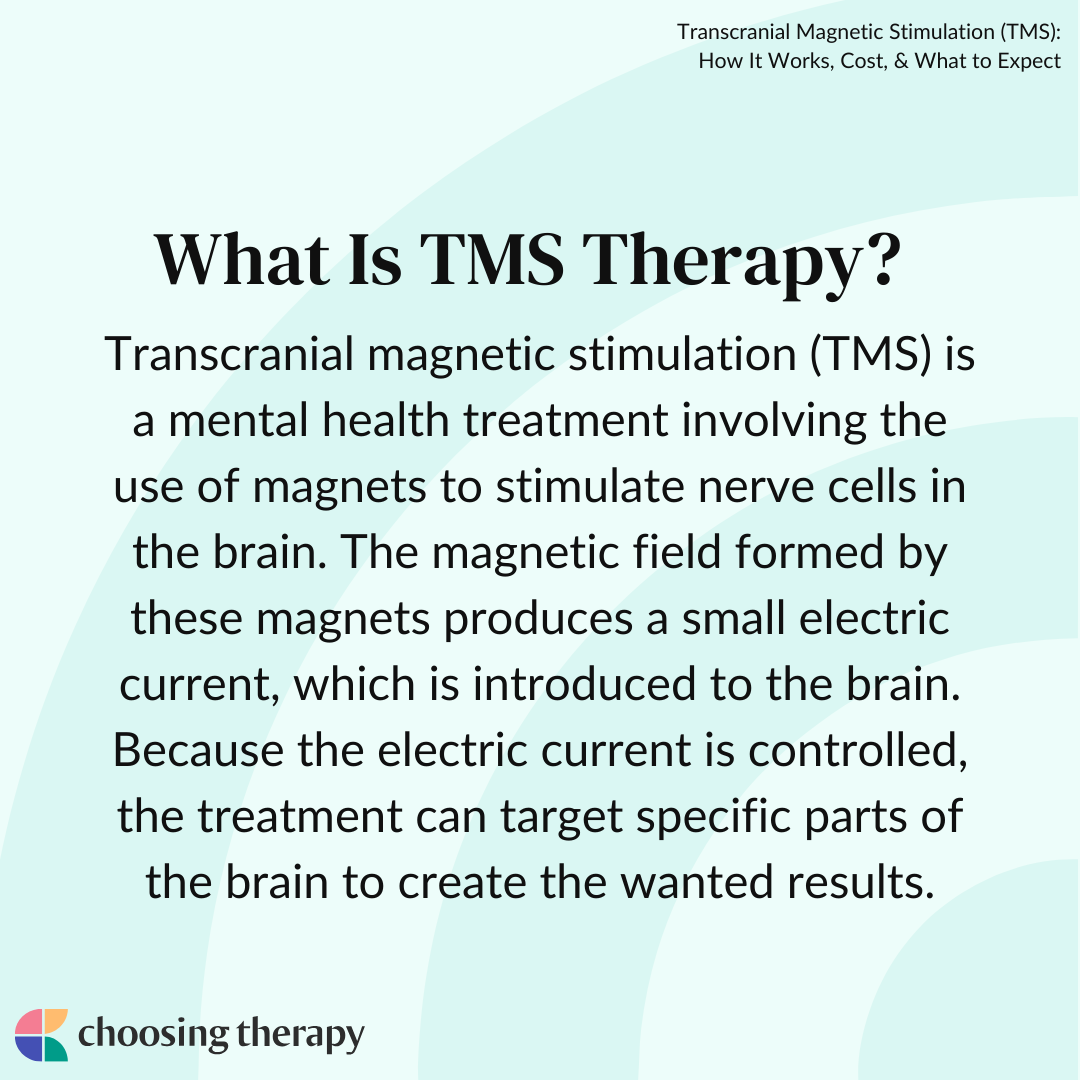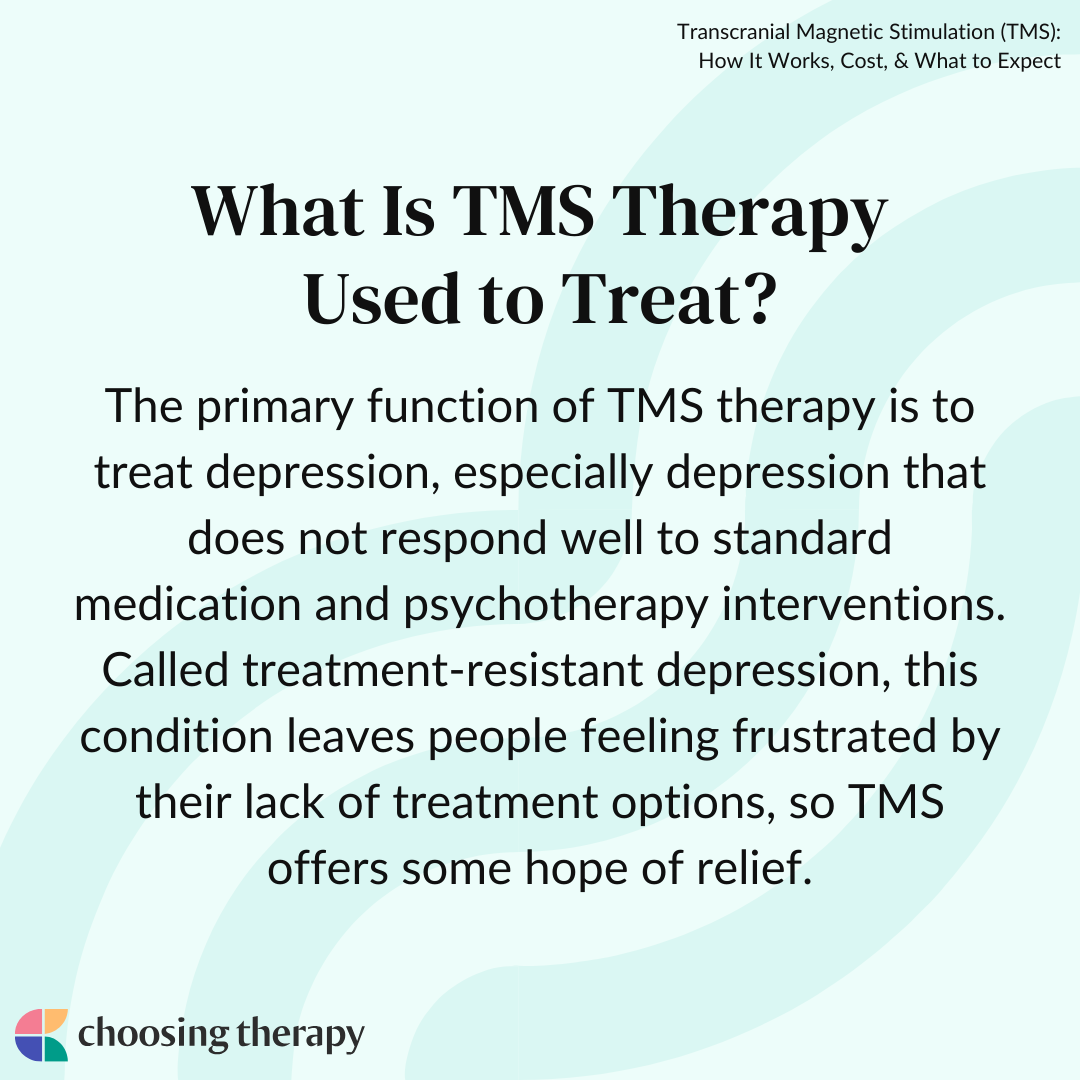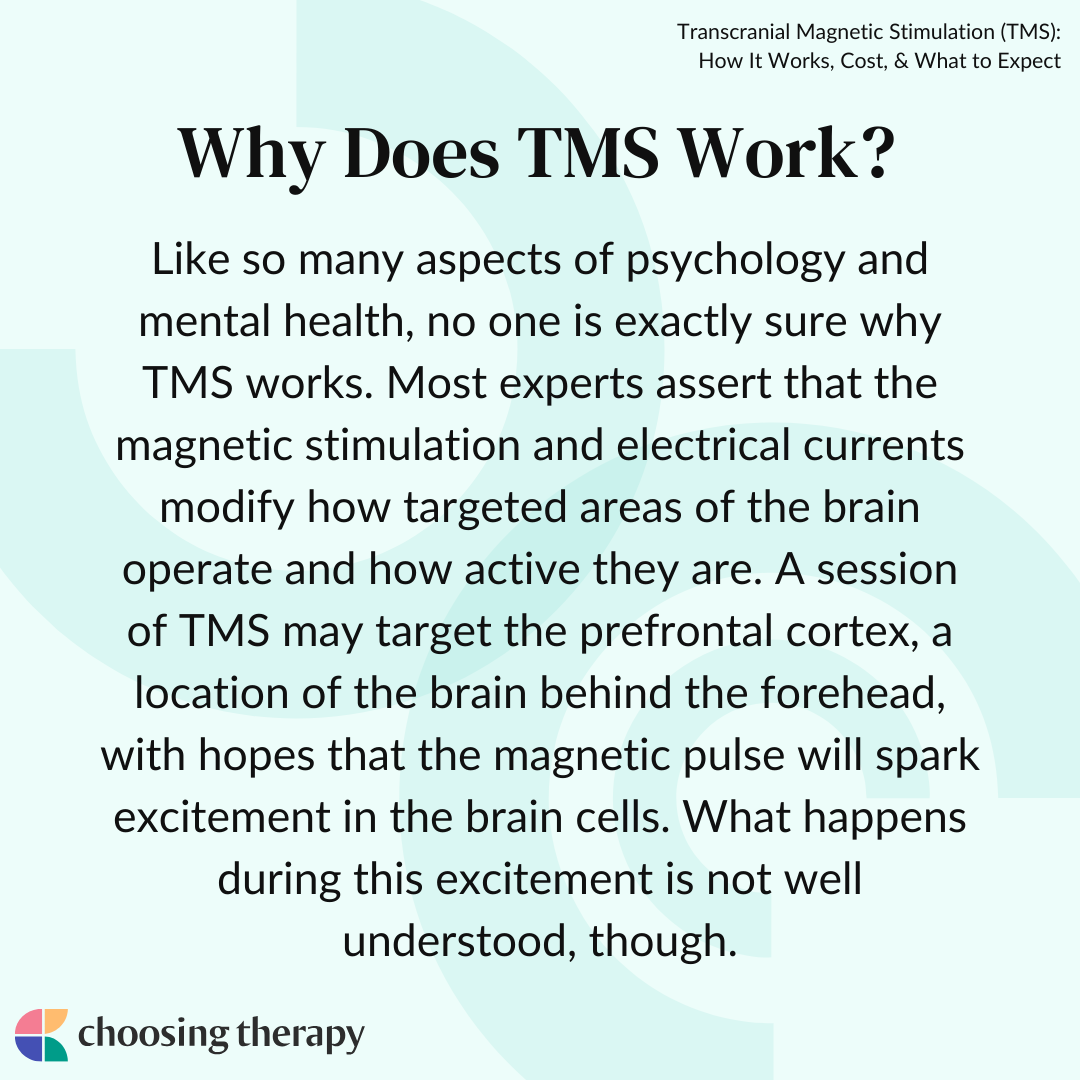Transcranial magnetic stimulation (TMS) is one type of alternative treatment for depression and other psychiatric conditions that uses magnets to stimulate certain parts of the brain. For people who have not benefited from traditional treatments, TMS therapy could create significant improvements.
Online Psychiatry and Medication Management Covered By Insurance Talkiatry can match you with a real psychiatrist who takes your insurance and is seeing new patients. They’re in-network with major insurers and offer medication management. Get started with a short online assessment
What Is TMS Therapy?
Transcranial magnetic stimulation (TMS) is a mental health treatment involving the use of magnets to stimulate nerve cells in the brain.1 The magnetic field formed by these magnets produces a small electric current, which is introduced to the brain. Because the electric current is controlled, the treatment can target specific parts of the brain to create the wanted results.2
According to Lilly Sanchez, TMS Coordinator and Counselor for Genesis Behavioral Health, “TMS is a non-invasive approach that allows those suffering from treatment resistant depression to have hope in a treatment that can relieve their depressive symptoms that medications, therapy etc. have not been able to relieve. TMS takes magnetic pulses in order to teach neurons how to fire together. The technology allows lasting effects up to 12 months after a full series of TMS.”
Types of TMS
There are two main types of TMS, dTMS and rTMS:
- Repetitive transcranial magnetic stimulation (rTMS) is the most commonly used type in studies and in treatment settings. The level of magnetic pulses used during rTMS equal the same strength associated with a magnetic resonance imaging (MRI) scan.3
- Deep transcranial magnetic stimulation (dTMS) is a less-often used form of the treatment. Rather than pinpointing specific areas of the brain to target with magnetic pulses, dTMS stimulates larger and deeper brain regions. For comparison, dTMS reaches about four centimeters below the skull where rTMS only reaches about two or three centimeters.3
Recently, a newer treatment branched off from rTMS called Theta Burst Stimulation (TBS). TBS provides stimulation bursts that are very short in duration at high frequencies. TBS is available as continuous TBS (cTBS) and intermittent TBS (iTBS) with the styles differing in the way the bursts are presented to the patient.3
What Is TMS Therapy Used to Treat?
The primary function of TMS therapy is to treat depression, especially depression that does not respond well to standard medication and psychotherapy interventions. Called treatment-resistant depression, this condition leaves people feeling frustrated by their lack of treatment options, so TMS offers some hope of relief.
At times, TMS is utilized when people cannot tolerate the effects of psychiatric medications. If these medications create too many negative side effects or interact with other medical treatments, TMS could be a welcomed option.4
Another group of people will use TMS in addition to their psychiatric medication routine. Perhaps a person achieves some benefit from their therapy and medication, but they want to experiment with ways to achieve more symptom relief. TMS could be a suitable way to augment other professional treatments.4
As recently as mid-2019, a specific device called the BrainsWay Deep TMS was approved for use in the treatment of TMS for OCD.2 Although TMS is only approved for these two conditions in the US, a great deal of research is being conducted currently to discover the full extent of this technology, including TMS for bipolar disorder.
In Europe, the BrainsWay TMS is used for:
- Bipolar disorder
- Addictions
- PTSD
- Schizophrenia
- Alzheimer’s Disease
- Autism
- Chronic pain
- Multiple Sclerosis (MS)
- Parkinson’s Disease
- Rehabilitation after a stroke
 According to Dr. Edmund P. Williams, Founder of Genesis Behavioral Health, “The most important advantage of TMS is that it is a non-invasive approach to treatment of depression, especially depression that is not responding to medications and talk therapy. TMS uses magnetic pulses to safely stimulate the brain and restore the normal function of its networks. The fact that TMS is so safe is very reassuring. TMS works on a high percentage of people, even if they have tried several medications and have been depressed for a long time.”
According to Dr. Edmund P. Williams, Founder of Genesis Behavioral Health, “The most important advantage of TMS is that it is a non-invasive approach to treatment of depression, especially depression that is not responding to medications and talk therapy. TMS uses magnetic pulses to safely stimulate the brain and restore the normal function of its networks. The fact that TMS is so safe is very reassuring. TMS works on a high percentage of people, even if they have tried several medications and have been depressed for a long time.”
Why Does TMS Work?
Like so many aspects of psychology and mental health, no one is exactly sure why TMS works. Most experts assert that the magnetic stimulation and electrical currents modify how targeted areas of the brain operate and how active they are.1 A session of TMS may target the prefrontal cortex, a location of the brain behind the forehead, with hopes that the magnetic pulse will spark excitement in the brain cells. What happens during this excitement is not well understood, though.4
The use of TMS is further confused because not all treatment areas produce the wanted results. Studies find that performing TMS on the left or right side of the head and brain can create unwanted outcomes. TMS used in these locations could actually increase depression, OCD, and other psychiatric symptoms.4
Top Rated Online Therapy Services BetterHelp – Best Overall “BetterHelp is an online therapy platform that quickly connects you with a licensed counselor or therapist and earned 4 out of 5 stars.” Visit BetterHelp Talkspace - Best For Insurance Talkspace accepts many insurance plans including Optum, Cigna, and Aetna. Typical co-pay is $30, but often less. Visit Talkspace
How to Prepare for TMS Therapy
Before beginning TMS therapy, you will complete a physical exam and possibly lab work or other tests. It is important to let your provider know if you are pregnant, have any pre-existing conditions, or are taking any medications. Risk factors will be assessed to make sure TMS is the right treatment for you, including a history of seizures, metal or implanted medical devices in the body, brain damage from illness or injury, or prior TMS treatments. A mental health evaluation is also required before receiving TMS.5
What to Expect During TMS Therapy
Variability and individual differences exist in the TMS procedure, but the process generally involves a person sitting in a chair while a professional positions a machine around the head. Once in position, the machine creates the magnetic field, and the process ends without any invasive, uncomfortable, or dangerous actions.2
 Amr Beltagui, MD, of Mindful Health Solutions, is an expert in TMS interventions. Dr. Beltagui reports that during the first appointment, “You’ll be taken to a treatment room, asked to sit in a reclining chair, and given earplugs to wear.” The earplugs help to block out the noise as TMS machines may be quite loud.
Amr Beltagui, MD, of Mindful Health Solutions, is an expert in TMS interventions. Dr. Beltagui reports that during the first appointment, “You’ll be taken to a treatment room, asked to sit in a reclining chair, and given earplugs to wear.” The earplugs help to block out the noise as TMS machines may be quite loud.
Dr. Beltagui continues, “An electromagnetic coil will be placed against your head and switched off and on repeatedly to produce stimulating pulses. Your doctor will determine the amount of magnetic energy needed by increasing the magnetic dose until your thumb twitches.” There is no reason to worry about the thumb twitch as this is an expected part of treatment and “commonly referred to as the motor threshold determination,” according to the expert.
Each treatment that follows will abide by a similar path with sitting in the chair, putting in ear plugs, and having the coils placed against your head. Dr. Beltagui notes that “when the machine is turned on, you’ll hear clicking sounds and feel tapping on your forehead.” Like with the thumb twitching, though, this is all part of the typical experience and should raise no concerns.
“A single session usually lasts between 3 and 19 minutes – depending on the protocol used. However, with some of the older machines, a single session can last as long as 37 minutes,” per Dr. Beltagui. Other experts report sessions may last up to 50 or 60 minutes, but this duration likely depends on equipment, symptoms, and goals.2, 6
Each person is fully awake and alert during the entirety of the procedure. There is no need for any medications or sedation, since TMS is relatively comfortable and pain free. “You may feel some scalp discomfort during the treatment and for a short time afterward,” but these are commonly fleeting, so “you can return to your normal daily activities. Typically, between treatments, you can expect to work and drive,” says Dr. Beltagui.
Who Administers TMS?
The process of TMS will usually begin with a psychiatrist or another physician who is trained in the treatment. The doctor will be instrumental in the beginning of the treatment to determine the duration and intensity of treatment by determining the motor threshold that induces the thumb twitch.
From there, a TMS technician may be the one to actually perform the procedure while under the supervision of the physician. The patient will always have a professional in the room with them and can stop the process at any time.4
How Often Does Someone Attend TMS Sessions?
TMS is effective, but it cannot create significant results in only one or two sessions. For best results, people interested in TMS should be willing to commit a substantial amount of time towards feeling well and reducing symptoms.
According to Beltagui, “TMS requires a series of treatment sessions to be effective. Generally, sessions are carried out daily, five times a week, for four to six weeks.” Because of the individualized nature of the treatment, some people will complete fewer sessions while others will need ongoing treatment to achieve and maintain the results.4
What to Expect After Treatment
While many patients experience a headache after each treatment, most can return to their normal daily activities immediately following each session. Continuing to drive and work between treatments is expected. Many patients experience symptom relief after a few weeks of TMS treatments.5
What Is the Recovery Time After Receiving TMS?
Most side effects that follow TMS treatment are mild and last only a few minutes. If you experience any tingling or twitching in your face or scalp, the physician may ask you to wait a few minutes before leaving. Other common side effects include headache, pain in the scalp or neck, dizziness or lightheadedness, temporary ringing in the ears, and increased sensitivity to sound. These are usually mild and fleeting.7
How Long Will Someone Receive TMS Therapy?
The full effects of TMS may not become obvious until late in the treatment plan with some only noting progress during the fifth or sixth week. Due to this trend, people should be willing to attend all scheduled sessions.5
Like with other treatments, the results of TMS may begin to diminish over time. When this occurs, people should contact their TMS treatment provider and consult about the best course of action to maintain or recapture the best results.
Benefits of TMS Therapy
TMS therapy has several important benefits, and is a valuable treatment option for those facing severe, treatment-resistant depression.
- It’s noninvasive: TMS involves the use of a magnetic coil placed against the scalp, and is noninvasive. The coil delivers magnetic pulses to stimulate the nerve cells in the brain related to mood.
- It’s safe: Research shows that TMS is safe, even for adolescents.8
- It’s effective: Adjunctive TMS was shown to be effective in the acute and maintenance treatment of people with treatment-resistant depression.9
- It can save lives: For those with severe depression and suicidality, TMS therapy can be a life-saving treatment option.
- It can work well in combination with other treatments: TMS works best in combination with other treatments, like medication and psychotherapy.
Online Psychiatry and Medication Management Covered By Insurance Talkiatry can match you with a real psychiatrist who takes your insurance and is seeing new patients. They’re in-network with major insurers and offer medication management. Get started with a short online assessment
What Are the Potential Side Effects of TMS?
TMS can create some side effects, but they are generally rare and mild with headaches being the most commonly reported results.4
Other common side effects of TMS include:1,4
- Scalp discomfort
- Facial twitching during the procedure
- Complaints of hearing problems due to the loud machine
- Lightheadedness
Uncommon Side Effects
While for most people, any TMS side effects are mild and resolve quickly, some people may have an adverse reaction, causing more severe side effects:
- Seizures: There is a small risk of seizures when receiving TMS therapy. However, it is important to note that the risk of TMS-related seizures is reportedly less than 1% overall. This rate is comparable to the seizure risk of most psychotropic medications.8
- Mania: Research reports that there is a 0.84% risk of mania as a side effect of TMS treatment, most often occurring in people with a prior diagnosis of bipolar disorder. In many cases, symptoms of mania subside with proper care, including stopping TMS treatment.10
- Hearing loss: TMS produces a sound level insufficient to cause hearing loss, however, present studies show that it transiently may disturb hearing mechanisms in healthy subjects.11
Who Can NOT Receive TMS Treatment?
With TMS generally being safe and effective, many people are eligible to receive the treatment. Due to the unique nature of the procedure, some people will not be able to receive TMS because of physical or mental health issues.
Those who may not be eligible for TMS include:4
- People with any metal in their head or neck like braces, dental fillings, stents, clips, implants, or any other items
- Facial tattoos with magnetic-sensitive ink
- A history of seizures
- Being pregnant
Before TMS begins, each person should receive a full medical and mental health evaluation to determine the appropriateness of the treatment. Pregnancy, brain injury, history of headaches, and other health issues could disqualify some but not all people. Be sure to consult with a trusted and reliable physician to receive the best recommendations.
How to Find a TMS Specialist
TMS treatments must be prescribed by a physician or other TMS certified provider after an evaluation shows that this option is suitable. Depending on a person’s individual location, TMS may be provided in hospitals, mental health treatment centers, outpatient clinics, and doctor’s offices.
In some areas TMS options will be plentiful, so the individual can survey available options to find the most appropriate provider. Other places will have only one or no convenient providers offering the treatment, which means people may not have a sufficient choice.
Since it can be challenging to locate all available TMS services, searching for national companies that provide the equipment may be the best option. Two of the most prominent TMS companies are NeuroStar and BrainsWay. Both of these groups offer treatment locator tools on their websites for additional information.
Other ways to locate TMS services include:
- Seeking a referral from the insurance company
- Speaking to a primary care physician (PCP) or mental health provider
- Researching online with search engines and message boards
- Asking for assistance from a trusted friend
Be sure to take your time when deciding on the best treatment provider for you. It may be different from the recommendations trusted people offer.
Key Questions to Ask When Considering TMS
No one should ever enter into a new form of mental health treatment without first having a question and answer session with the provider. Doing so will give the prospective patient a better understanding of the risks and rewards linked to the treatment. Armed with the best, most honest information, each person can make the choices that fit their treatment goals.
According to TMS expert Dr. Beltagui, there are four main questions you need to ask your TMS doctor:
- What kind of TMS machine do you use? There are seven different manufacturers of TMS machines. Some use older technologies that do not support advanced protocols.
- Who is going to treat me? In many TMS clinics, you meet the psychiatrist only once during the first TMS session. After that, all you see is a TMS technician. This is not the standard of care.
- How long will my TMS sessions last? Depending on the protocol used, a single TMS session can last 37, 19, or only 3 minutes. Efficacy is equivalent.
- How much will my treatment cost? TMS is covered by most insurances. But if you have a high deductible and high copays, the out-of-pocket cost can be a bit too much.”
Some other key questions to ask your provider before beginning TMS include:
- How will we know the treatment is working?
- What happens if my symptoms do not improve?
- Can schedule more sessions to create better symptom alleviation?
- I didn’t find success with one form of TMS, should I try another?
All treatment providers should commit enough time and energy to answering all questions. A provider who rushes you or invalidates your experience may not be the best choice for your needs.
TMS Therapy Cost
Because of the equipment, the staff, and the nature of the procedure, TMS is not a cheap form of treatment. Prices, of course, will vary by region, availability, and provider expertise, with the cost of TMS ranging from $7,000 to $10,000.12 This cost is inclusive of all treatment sessions, five days per week for six weeks.
In many cases, mental health insurance plans will cover TMS, but the person may have to overcome some hurdles before acceptance.1 The person will need to be diagnosed with a covered disorder (like treatment-resistant depression), and many times, the person will have to fail to get symptom relief from medication management before the insurance company will consider paying.
As with other available treatments, a person should contact their treatment center as well their insurance company for complete information before beginning sessions. Having a surprise bill could hinder any progress made by TMS.
Williams mentions that insurance companies will only cover TMS when used to treat depression: “Presently, depression is the only condition being covered by insurance for treatment with TMS. There are other conditions in which TMS has been shown to be effective, such as OCD, PTSD, and anxiety, but they are not currently covered unless depression is also present.”
Is TMS Therapy Effective?
For many people, TMS treatment is a safe and effective way to reduce symptoms of depression or other mental health conditions. When asked about the efficacy of TMS, Dr. Beltagui says, “Since every patient is different, reaction to treatment can vary. Some patients report feeling a slight improvement in their symptoms after two weeks of treatment, while others do not report noticeable changes until week four or five. If it takes longer to notice symptom relief using TMS compared to someone else, this does not mean that the treatment is ineffective. Ultimately the effects of TMS are the same: relief of depressive symptoms that are long-lasting.”
Criticisms of TMS
People unfamiliar with TMS may be skeptical and claim that the treatment simply does not work for any mental health condition. Others believe that the treatment is a sham that could actually cause more harm than good.
Though these criticisms may seem compelling or believable, there is no evidence to support these assertions. Though there have been limited studies thus far, TMS appears to be an effective form of treatment for some people with a very low risk of side effects or other complications.
What to Do When TMS Doesn’t Work
In some cases, treatment plans may need to be tweaked along the course of TMS therapy. When this happens, it will most often be suggested that the client supplement TMS with other treatment options, like medication and psychotherapy. If the client is still struggling with symptoms, the treatment team may then choose to pursue altering an adjunctive therapy, like changing the dose of a medication or switching to a different medication, or adjusting the approach being utilized in psychotherapy. If, after all of these options have been explored, the client still faces severe, persistent symptoms of depression, the treatment team may begin to consider an alternate treatment approach, like ECT, which poses more risks.
How Is Transcranial Magnetic Stimulation Different From Electroconvulsive Therapy (ECT)?
Before TMS, electroconvulsive therapy (ECT) was a standard level of care for people with treatment-resistant depression. In many settings, ECT is still used for people who do not respond to other forms of treatment, but with TMS, the benefits of ECT seem less significant.
Used in situations where rapid improvement is needed to create safety, ECT involves passing an electrical current through the brain. In the past, this process was quite violent and dangerous, but now, with the use of sedation and muscle relaxers, the treatment is much more comfortable.
The most significant positive of ECT is the rapid rate of improvement with the patient often reporting symptom alleviation within one week.
The major downside of ECT is the risk of side effects. Possible ECT side effects include headache, upset stomach, muscle aches, and memory loss.2 Because the patient is given general anesthesia, the procedure is usually completed in a hospital setting, unlike TMS, which is completed in outpatient settings and requires only minimal recovery time.
History of TMS
TMS is not a new procedure. Since 1985, professionals have been exploring and experimenting with the treatment to learn the best ways to utilize the system. TMS aimed to create some of the same benefits of ECT without the risks and unwanted side effects connected to the electric shock.
Since the mid-1980s, TMS has been studied in relation to depression, psychosis, anxiety, addictions, PTSD, and other mental health conditions with varied success. In 2008, the FDA approved TMS for major depression with OCD approval following more than a decade later. Then, in August of 2020, the FDA approved the treatment to address tobacco use and smoking cessation.12
As studies continue, people can expect to see the approved uses of TMS grow to include more mental and neurological conditions.
Final Thoughts on TMS
TMS will not be the best treatment for all people, but for someone struggling with depression or other conditions that have not responded well to medications or other therapeutic interventions, TMS is a viable option. Anyone interested in the treatment should complete some independent research, consult with their treatment team, and check with their insurance for coverage. Not all TMS is equal, so interview providers focused on expertise and efficacy.
To help our readers take the next step in their mental health journey, Choosing Therapy has partnered with leaders in mental health and wellness. Choosing Therapy is compensated for marketing by the companies included below. Online Therapy BetterHelp – Get support and guidance from a licensed therapist. BetterHelp has over 20,000 therapists who provide convenient and affordable online therapy. Take A Free Online Assessment and get matched with the right therapist for you. Free Assessment Online Psychiatry Hims / Hers If you’re living with anxiety or depression, finding the right medication match may make all the difference. Connect with a licensed healthcare provider in just 12 – 48 hours. Explore FDA-approved treatment options and get free shipping, if prescribed. No insurance required. Get Started Medication + Therapy Brightside Health – Together, medication and therapy can help you feel like yourself, faster. Brightside Health treatment plans start at $95 per month. United Healthcare, Anthem, Cigna, and Aetna accepted. Following a free online evaluation and receiving a prescription, you can get FDA approved medications delivered to your door. Free Assessment Starting Therapy Newsletter A free newsletter for those interested in learning about therapy and how to get the most benefits out of therapy. Get helpful tips and the latest information. Sign Up Choosing Therapy Directory You can search for therapists by specialty, experience, insurance, or price, and location. Find a therapist today.Additional Resources
What Is Exposure and Response Prevention Therapy? ERP therapy alters OCD’s pattern by addressing both obsessions and compulsions. In ERP, an individual is encouraged to confront the stimuli that trigger distress related to their obsessions while also resisting the urge to perform compulsions in an attempt to reduce their distress.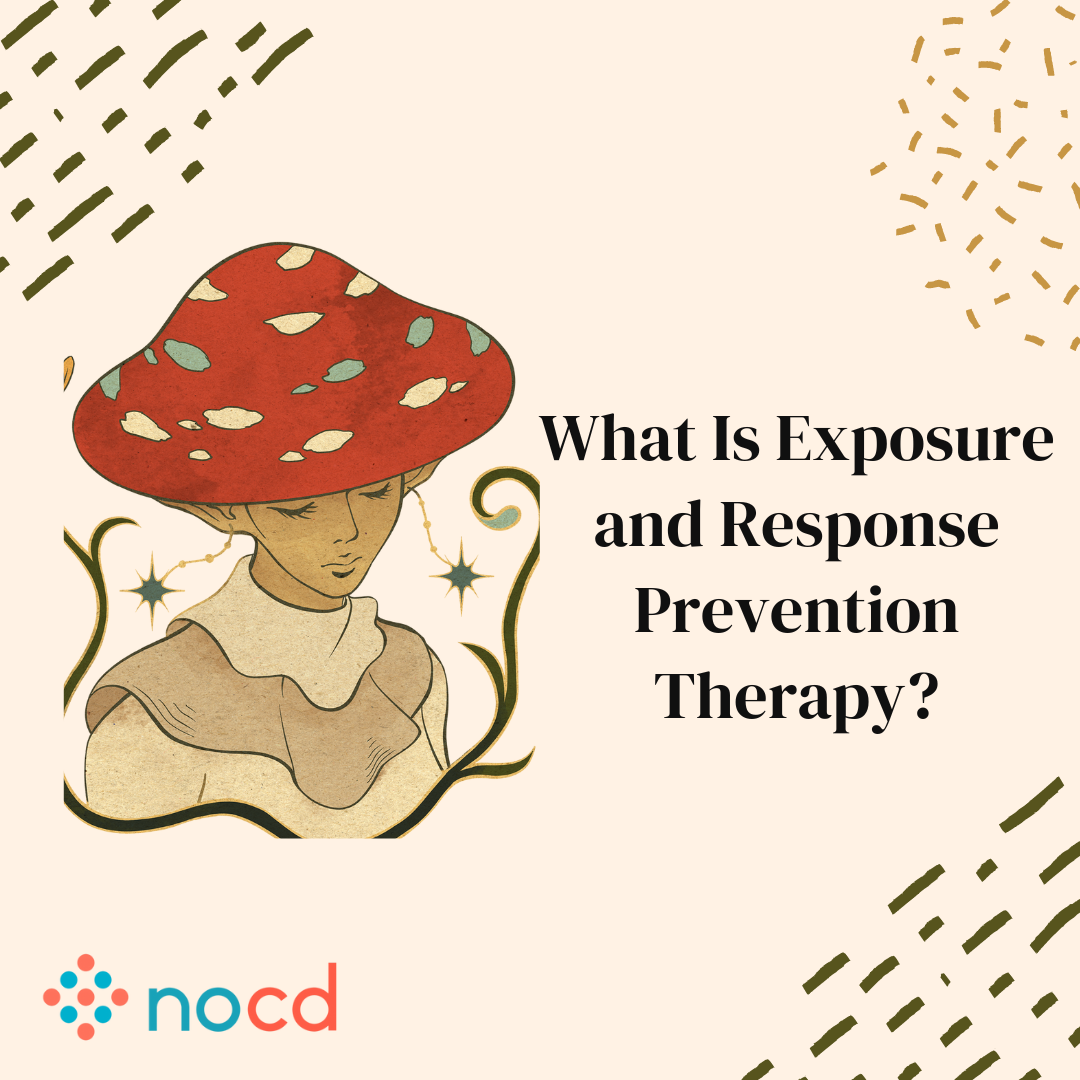
Why is ERP So Expensive? There are hundreds of OCD tests and “OCD quizzes” online. Some aim to help people self-diagnose; others turn obsessive-compulsive disorder into a joke. Either way, a vast majority of these are not helpful and probably create more problems than solutions.